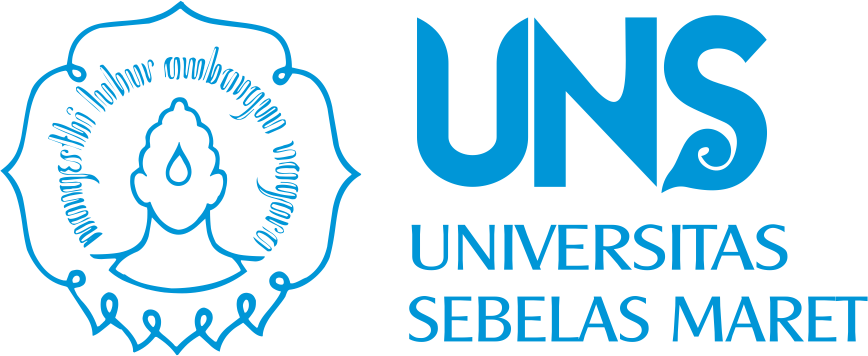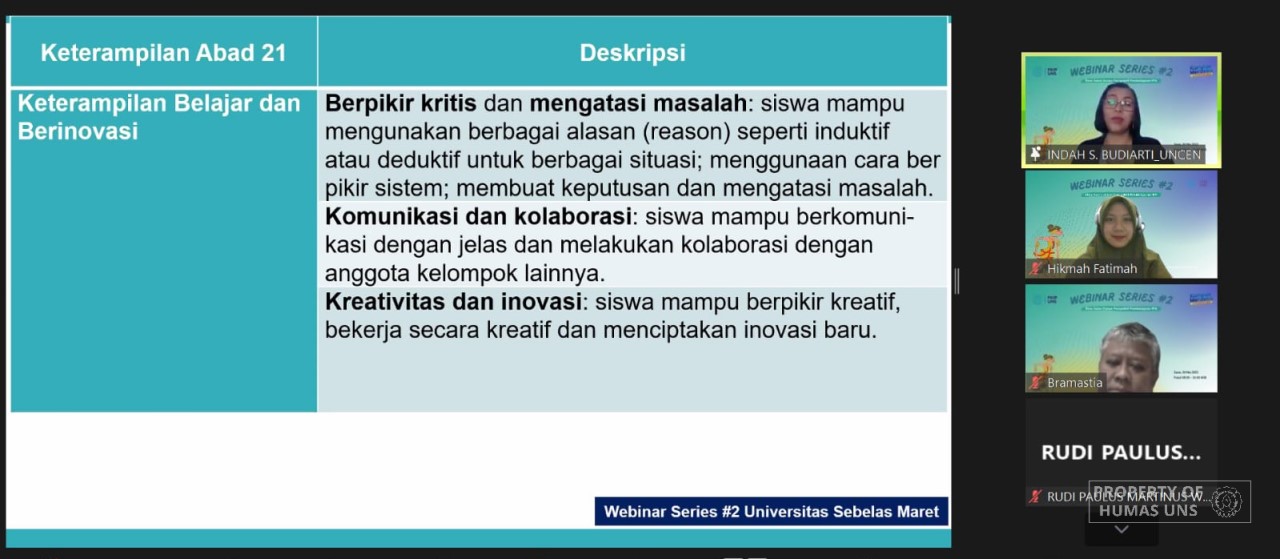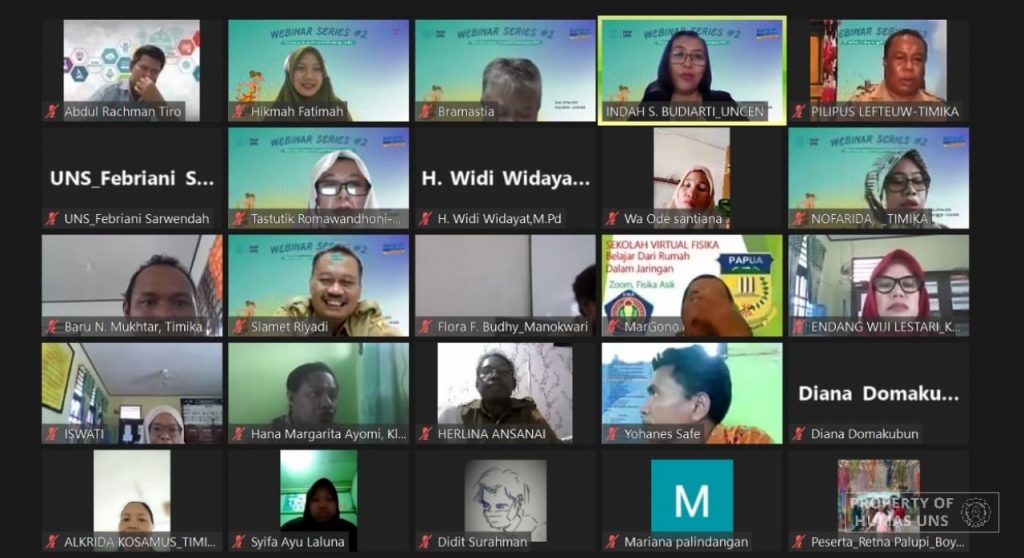UNS — The Master in Science Education Study Program, Faculty of Teacher Training and Education (FKIP), Universitas Sebelas Maret (UNS) Surakarta, held a national webinar. This webinar, which took place on Monday (30/5/2022), featured the theme of Ethnoscience in the Perspective of Natural Sciences Learning. This agenda is one of the regular agendas carried out by the Master in Science Education Study Program to establish collaboration with alumni.
In this webinar, the Science Education Study Program invited ethnoscience experts, Dr. Indah S. Budiarti, the Head of Physics Education Study Program, FKIP Universitas Cenderawasih, as the main speaker. The webinar was also attended by the Head of the UNS Science Education Study Program, Dr. Sarwanto. In his remarks, he said that science education learning using an Ethnoscience-based approach is crucial to be implemented in the classroom. “This is because ethnoscience learning method provides opportunities for teachers to bring science learning in an integrated manner, which is in line with the 2013 curriculum mandate, related to integrated science learning,” he said when delivering a welcome remark.
After the welcome speech, the event was followed by the presentation from Dr. Indah, which was moderated by Dr. Bramastia, a lecturer from the Science Education Study Program UNS. Starting her presentation, Dr. Indah said that there are many cultural potentials that can be embedded in science learning. “When implementing ethnoscience in student learning, we need to pay attention to local wisdom surrounding the students. Learning using an ethnoscience approach can make learning more meaningful because it can be found in the students’ daily lives, thus nurturing a wise environmental attitude,” explained Dr. Indah.
She also gave examples of ethnoscience in the Papua area, such as the Molo tradition, Menokok Sagu, Pesta Bakar Batu, bow-hunting, the Tobati-Enjros Jayapura tribal house, and the sailing time of the Asmat tribe. “The application of ethnoscience must pay attention to the students’ characteristics, learning objectives, learning contents sequence, learning tools, learning strategies, learning resources, and task analysis for students,” she concluded. Humas UNS
Reporter: Bayu Aji Prasetya
Editor: Dwi Hastuti


